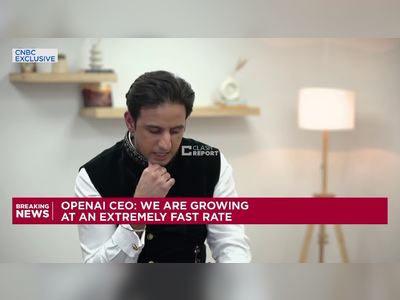Venlo Construction Firm Collapses in Scandal: Owner Sells Lease Car to Cover Seven-Figure Debts
Fraudulent Practices Exposed as Sampers Bouw Leaves Behind €700,000 Debt and 56 Victims
In a dramatic unfolding that is sending ripples through the Dutch construction industry, the collapse of Sampers Bouw from Venlo has unveiled a complex web of dubious financial practices.
At the center of this controversy is the owner who, just before the company's bankruptcy declaration, sold a car belonging not to him, but to a leasing company.
This revelation is among the most startling findings of the trustee tasked with untangling the company's financial mess.
The fallout of Sampers Bouw's collapse has affected 56 creditors, each left grappling with the loss, as the firm racks up debts amounting to €700,000.
The scandal exemplifies a troubling trend in the construction sector, where contractors, under mounting financial pressures, engage in ethically questionable, if not outright illegal, activities.
Adding to the drama is the unresolved dispute over unfinished jobs, exemplified by the plight of Max van der Randen, whose windows remain incomplete due to the halted operations.
Such cases highlight the broader impact of Sampers Bouw's failure to manage finances responsibly, leaving customers and subcontractors in disarray.
This incident raises broader questions about oversight and financial regulatory measures within the sector.
As more details emerge, industry insiders and regulators are prompted to reassess policies intended to safeguard against such fraudulent acts that jeopardize stakeholders.
The Sampers Bouw bankruptcy serves as a cautionary tale, underscoring the urgent need for improved transparency and accountability in the construction industry.
In a saturated market where competition is fierce, the downfall of Sampers Bouw highlights vulnerabilities faced by similar entities.
The unscrupulous actions of its owner not only serve as a stark warning but also an opportunity for systemic reflection and reform.
As stakeholders rally for solutions, attention turns to measures that might protect honest enterprises and customers alike in an industry that forms the backbone of national infrastructure development.
At the center of this controversy is the owner who, just before the company's bankruptcy declaration, sold a car belonging not to him, but to a leasing company.
This revelation is among the most startling findings of the trustee tasked with untangling the company's financial mess.
The fallout of Sampers Bouw's collapse has affected 56 creditors, each left grappling with the loss, as the firm racks up debts amounting to €700,000.
The scandal exemplifies a troubling trend in the construction sector, where contractors, under mounting financial pressures, engage in ethically questionable, if not outright illegal, activities.
Adding to the drama is the unresolved dispute over unfinished jobs, exemplified by the plight of Max van der Randen, whose windows remain incomplete due to the halted operations.
Such cases highlight the broader impact of Sampers Bouw's failure to manage finances responsibly, leaving customers and subcontractors in disarray.
This incident raises broader questions about oversight and financial regulatory measures within the sector.
As more details emerge, industry insiders and regulators are prompted to reassess policies intended to safeguard against such fraudulent acts that jeopardize stakeholders.
The Sampers Bouw bankruptcy serves as a cautionary tale, underscoring the urgent need for improved transparency and accountability in the construction industry.
In a saturated market where competition is fierce, the downfall of Sampers Bouw highlights vulnerabilities faced by similar entities.
The unscrupulous actions of its owner not only serve as a stark warning but also an opportunity for systemic reflection and reform.
As stakeholders rally for solutions, attention turns to measures that might protect honest enterprises and customers alike in an industry that forms the backbone of national infrastructure development.











